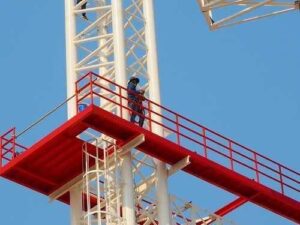In the dynamic realm of construction, navigating the intricate landscape of insurance and risk management is imperative for businesses to thrive. In Maryland, a state with a robust construction industry, understanding the nuances of construction insurance and risk management is essential for success and longevity. This page aims to shed light on the key aspects of construction insurance and risk management in Maryland, providing insights into the requirements that businesses must adhere to in this ever-evolving sector.
Understanding Construction Insurance in Maryland
Construction insurance is a multifaceted necessity that protects contractors, builders, and other stakeholders from unforeseen risks and liabilities during the project lifecycle. In Maryland, like in many states, certain types of construction insurance are mandated to ensure compliance with state laws and regulations. One such essential insurance coverage is general liability insurance.
General Liability Insurance in Maryland
General liability insurance is a foundational component of construction insurance in Maryland. This coverage protects construction businesses from third-party claims for bodily injury, property damage, or personal injury arising from construction activities. It provides a crucial layer of financial protection, shielding businesses from potential legal and financial ramifications.
Maryland, being a state with stringent regulations, often requires contractors to carry a minimum amount of general liability insurance. The specific requirements can vary based on the type and scope of construction projects. It is crucial for businesses to thoroughly understand and meet these requirements to operate legally within the state.
Worker’s Compensation Insurance
Another vital aspect of construction insurance in Maryland is worker’s compensation coverage. This insurance is designed to provide benefits to workers who suffer work-related injuries or illnesses. In Maryland, as in most states, worker’s compensation insurance is mandatory for construction businesses with employees. Failure to comply with this requirement can lead to severe consequences, including legal penalties and potential business disruptions.
Construction businesses must diligently assess their workforce and operations to determine the appropriate level of worker’s compensation coverage. This not only ensures compliance with state regulations but also demonstrates a commitment to the well-being of the workforce.
Risk Management Strategies for Construction Businesses
Beyond insurance, effective risk management strategies are integral to the success and sustainability of construction businesses in Maryland. Risk management involves identifying, assessing, and mitigating potential risks that could impact a construction project’s timeline, budget, and overall success.
Comprehensive Project Planning
One key element of risk management is comprehensive project planning. Construction businesses in Maryland must invest time and resources in thorough project planning to identify potential risks and develop mitigation strategies. This proactive approach can help minimize the impact of unforeseen challenges and contribute to the overall success of the project.
Legal Compliance and Regulatory Adherence
Maryland’s construction industry is governed by a complex web of regulations and compliance standards. Construction businesses must stay abreast of these regulations and ensure strict adherence to avoid legal complications and potential project delays. This includes compliance with environmental regulations, zoning laws, and safety standards.
Supply Chain and Vendor Management
Effective supply chain and vendor management are critical components of risk management in construction. Delays or issues with suppliers and vendors can have cascading effects on project timelines and budgets. Construction businesses in Maryland must establish robust relationships with reliable suppliers and vendors, implementing contingency plans to address potential disruptions.
Weather-Related Risks and Environmental Considerations
Maryland’s climate poses unique challenges for construction projects, with the potential for extreme weather events such as hurricanes, heavy rainfall, and snowstorms. Construction businesses must factor in weather-related risks in their risk management strategies, incorporating measures to protect workers, equipment, and project sites.
Additionally, environmental considerations play a significant role in risk management. Adherence to environmental regulations and sustainable construction practices not only mitigates risks but also aligns businesses with evolving industry standards and societal expectations.
Insurance Requirements in Maryland
Maryland, like many other states, has specific insurance requirements for construction projects. These requirements are in place to protect not only the construction companies themselves but also the workers, clients, and the general public. One of the primary forms of insurance required for construction projects in Maryland is general liability insurance. This type of insurance provides coverage for bodily injury, property damage, and personal injury resulting from the construction activities.
Additionally, Maryland law often requires construction companies to carry workers’ compensation insurance. This type of insurance provides benefits to employees who are injured or become ill as a result of their work. By carrying workers’ compensation insurance, construction companies can ensure that their employees receive the necessary medical treatment and financial support in the event of an on-the-job injury or illness.
Furthermore, depending on the nature of the construction project, additional types of insurance may be required. For example, projects involving heavy machinery or hazardous materials may necessitate pollution liability insurance. Similarly, projects that involve professional services, such as architecture or engineering, may require professional liability insurance to protect against claims of negligence or errors in professional judgment.
Navigating the landscape of construction insurance and risk management in Maryland requires a comprehensive understanding of legal requirements, industry standards, and proactive risk mitigation strategies. Construction businesses must prioritize compliance with insurance mandates, such as general liability and worker’s compensation coverage, to operate within the bounds of Maryland’s regulations.
Moreover, effective risk management goes beyond insurance, encompassing strategic planning, legal compliance, supply chain management, and environmental considerations. By adopting a holistic approach to risk management, construction businesses in Maryland can build a solid foundation for success, ensuring the longevity and resilience of their operations in a dynamic and competitive industry.
As you embark on your construction projects in Maryland, ensure the success and longevity of your business by prioritizing comprehensive insurance coverage and robust risk management strategies. Navigate the complexities of the construction industry with confidence, knowing that you are equipped to handle challenges and capitalize on opportunities. For personalized guidance and assistance with your construction insurance and risk management needs, contact Hartman, Attorneys At Law – your trusted legal partner in building a secure future for your construction business.